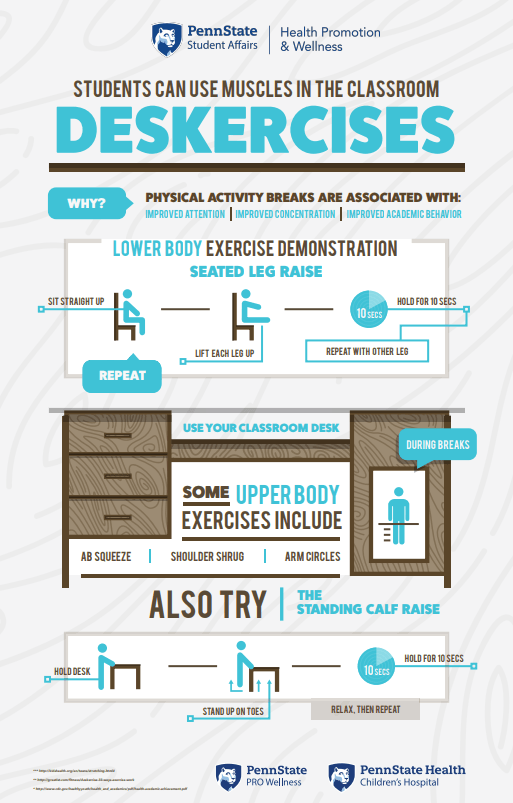Most Penn State students are doing a good job of making health a priority. In a recent survey, 89% of Penn State students described their health as “good, very good, or excellent (1).” Many students meet the recommendations for physical activity (56%) and a majority report healthy habits when it comes to sexual health (80%).
Despite this good news, there’s a growing area of concern about vaping and the use of e-cigarettes. There is a significant increase in the number of Penn State students regularly using these products. In 2016, 4% of Penn State students reported vaping or using e-cigarettes in the past 30 days. In 2018, this statistic jumped to 16% of students. Students perceive their peers to be vaping much more than they actually are. Eighty-six percent of students perceive other students vape or use e-cigarettes, when it is only 16% (1).
This misperception could be contributing to the increase in vaping over the past two years. Studies show that students who overestimate how much their peers use a substance such as cigarettes or alcohol are more likely to try the substance or increase their own use (2). Social influences are strong determinants of health behavior as well as marketing and low perception of risk.
Unfortunately, the use of e-cigarettes, especially high-nicotine versions, can lead to nicotine addiction. Researchers predict that dependence on nicotine caused by e-cigarettes may lead many young users to eventually turn to cigarettes (3).
Nicotine addiction can be hard to beat, but quitting is possible. Health Promotion and Wellness can help! Get the support you need to quit for good. Schedule an appointment at www.studentaffairs.psu.edu/healthmyUHS or call 814-863-0461. Ask for the Freedom from Smoking program. This program addresses all types of nicotine and tobacco use, including vaping and e-cigarettes.
- Penn State University’s ACHA National College Health Assessment, Spring 2018
- Warner, K.E., Mendez, D. E-cigarettes: Comparing the possible risks of increasing smoking initiation with the potential benefits of increasing smoking cessation. Nicotine & Tobacco Research, 2018, 1-7.
- Spindle, T.R., Hilder, M.M., Cooke, M.E., Eissenberg, T., Kendler, K.S., Dick, D.M. Electronic cigarette use and uptake of cigarette smkoing: A longitudinal examination of U.S. college students. Addictive Behaviors 67 (2017) 66-72



